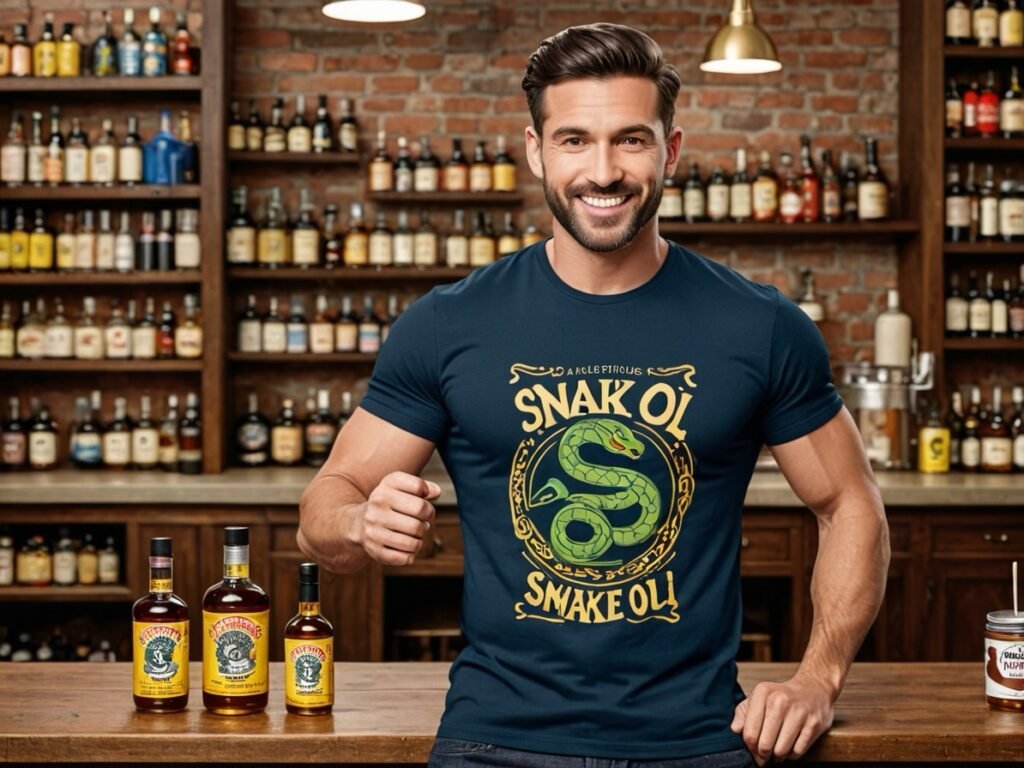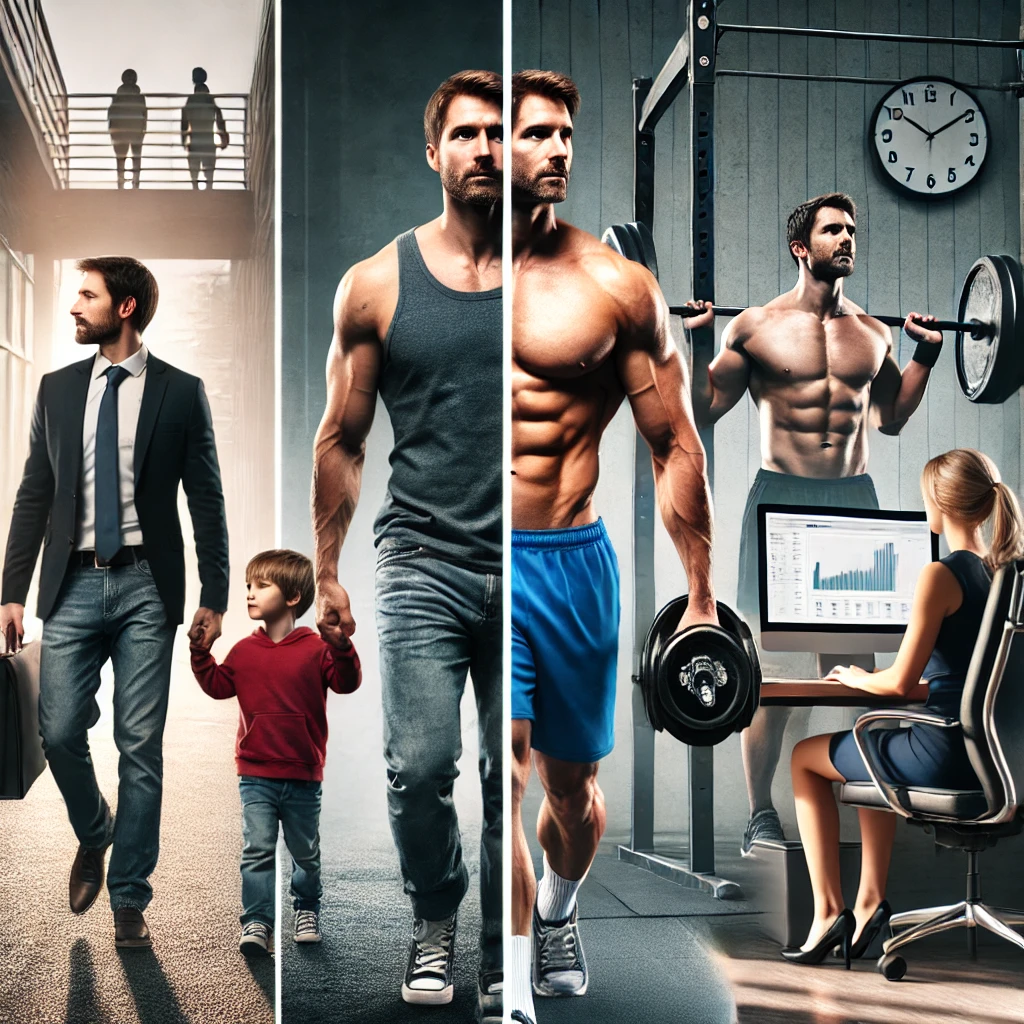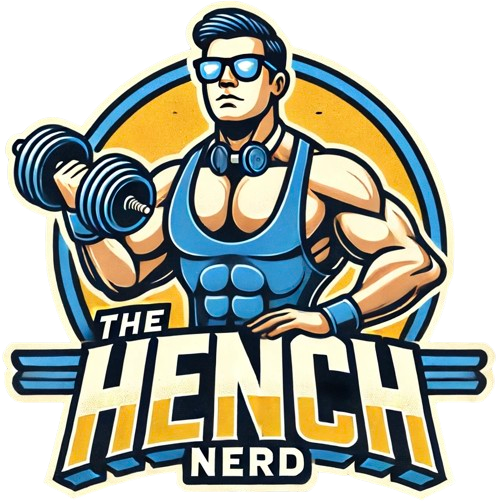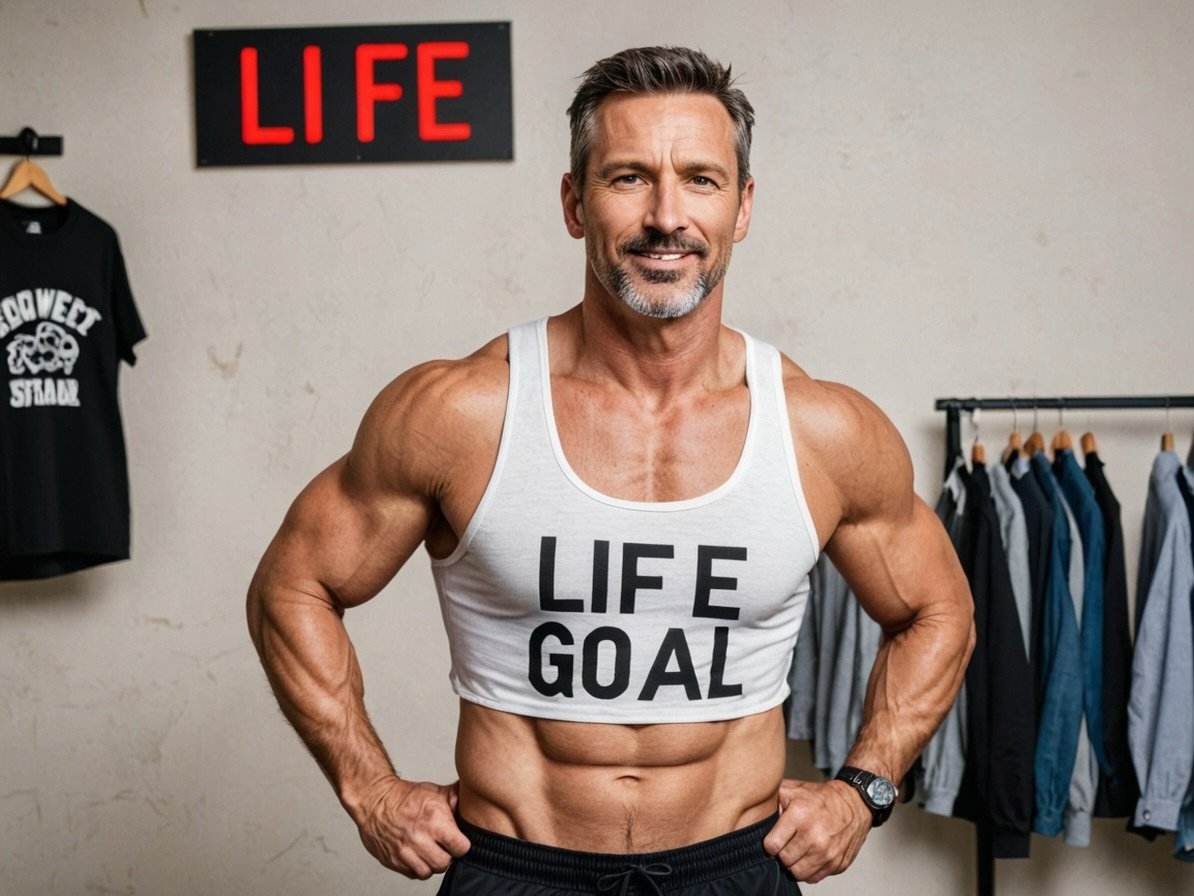Introduction: The Abs Obsession – What’s Behind the Hype?
There’s no denying it: abs have become the ultimate benchmark in the world of fitness. Flick through any magazine, scroll through Instagram, or check out a fitness video, and you’ll see them front and centre – the chiselled, defined abs that we’re led to believe signify peak physical form. But here’s the thing: Why are we so obsessed with abs? And more importantly, are abs overrated? Are we chasing something that ultimately won’t enhance our lives in any meaningful way?
In this article, we’ll explore why abs have become such a sought-after feature, why so many of us are obsessed with abs and if there’s any real value to having them. By the end, we’ll know if abs are worth the relentless pursuit or if, perhaps, are abs overrated?
Why Are We Obsessed with Abs?
The Power of the Aesthetic – What Abs Represent
Abs are more than just a muscle group; they’ve become a symbol, a physical representation of discipline, control, and peak fitness. Society has elevated them as the ultimate marker of fitness – a “badge” of hard work and dedication. We’ve all been there, spending hours looking for ab routines and obsessing and overcomplicating over what is a rather simple muscle group to understand (train them like any other muscle group and diet down so you can see them).
But why this particular muscle? In reality, abs are no more special than other muscles in the body, so what’s behind the obsession?
From an aesthetic standpoint, abs are highly visible, a muscle group that requires a specific body fat level to show. That visibility makes them a canvas – something people can display as proof of commitment and effort.
Marketers label abs as the “gold standard” of health and fitness, often overshadowing the importance of well-rounded fitness. With every crunch and meal restriction, society pushes the idea that having abs makes us “better” at fitness, more capable, and more attractive.
In truth, abs are a very narrow way to define fitness, but the allure of their visibility keeps us hooked.
The Psychology of Perfection – Chasing the Ideal Body

Our fascination with abs is often tied to the human desire for perfection. This fixation with the perfect body image often leaves people obsessed with abs as the ultimate symbol of fitness.
Psychologically, abs fit into our cultural narrative of an “ideal” body – the type of physique we believe will bring us more respect, admiration, and even happiness.
Think about it: how many times have you seen ads with a chiselled figure promoting products, services, or lifestyles? Society has linked visible abs with success, self-control, and attractiveness, turning them into a symbol of self-worth.
The psychological pull isn’t just about looking good, though. For many, it’s about what abs represent internally – the ability to push past discomfort, the mental strength to restrict, to sacrifice.
This chase for the perfect body can lead to an obsessive mindset, where people value their self-worth based on physical appearance rather than broader accomplishments or personal growth. We’ve also been historically conned and made poorer by some ridiculous ab devices.
Abs, in this way, have become less of a muscle group and more of a psychological goalpost.
How “Obsessed with Abs” Became Mainstream
The obsession with abs didn’t happen overnight; it’s been a gradual evolution with key cultural shifts over the decades. If we look back, abs weren’t always the centrepiece of fitness. Here’s how it all unfolded:
- The Golden Age of Bodybuilding (1950s-1970s): In the post-war era, bodybuilding began to gain traction, with icons like Arnold Schwarzenegger and Steve Reeves leading the charge. Abs were part of a larger, muscular physique that symbolised strength and masculinity, though they weren’t the main focus.
- The Fitness Boom of the 1980s: The 1980s introduced aerobics, workout tapes, and gym culture to mainstream audiences. Figures like Jane Fonda and Richard Simmons made fitness a household concept, but it was actors like Sylvester Stallone and Jean-Claude Van Damme who showcased the lean, ripped look that included highly visible abs.
- Media and Social Media’s Influence (2000s to Now): With the rise of Instagram, YouTube, and TikTok, fitness influencers started promoting abs as the ultimate goal. Abs became a visible “proof” of fitness expertise, creating a ripple effect that convinced millions of people that abs are the key to a desirable body.

This cultural shift has contributed to the belief that abs aren’t just a goal – they’re the goal. And with every passing decade, the grip of this obsession has only grown stronger.
Are Abs Overrated?
What Abs Won’t Do for You – The Real-Life Impact
The question is, are abs overrated if they don’t genuinely improve your quality of life?
The reality is that visible abs won’t make you a better person, a more skilled professional, or a kinder friend. They’re a physical attribute that, while impressive, won’t necessarily bring more happiness or fulfilment.
Sure, you might get a few compliments at the beach or feel a sense of accomplishment when you catch your reflection, but how much impact does that truly have?
For most people, the initial novelty fades, leaving them to question if the relentless pursuit was truly worth it.
Abs don’t guarantee happiness, nor do they provide a lasting sense of self-worth. They’re part of a temporary physical condition, one that requires constant upkeep and sacrifice.
Here’s the additional content crafted to avoid repetition and align with all instructions, fully optimising for the keywords while enhancing the article’s depth and completeness.
Can Abs Really Make You Happier? The Emotional Impact of Chasing Abs

little evidence to suggest that achieving a specific physique, like visible abs, contributes to long-term happiness or improved quality of life. Sustainable satisfaction in fitness is often tied to functional health and balanced goals.”
— Dr. Kristin Neff, Researcher in Self-Compassion and Psychology
The “Abs Will Change Your Life” Myth
One of the biggest myths surrounding abs is the idea that they’ll somehow transform your life – that a visible six-pack will bring lasting happiness, fulfilment, or even validation. While having abs might deliver a short-term confidence boost, for many, the thrill wears off.
After achieving visible abs, you may find yourself questioning what’s truly changed. You’ll still face the same challenges, same ups and downs, and the same daily life. Abs don’t offer a guaranteed path to happiness; they’re simply one facet of physical aesthetics.
Visible abs often come with sacrifices, from social restrictions to diet limitations, which can create a sense of isolation or even dissatisfaction. The pursuit of abs might seem like a ticket to fulfilment, but true happiness is rarely tied to appearance alone. As I’ve mentioned in previous posts, do you know what changed for me once I achieved abs? Nothing…. Apart from a complete lack of sex drive, feeling cold and irritable all the time.
How Abs Can Affect Self-Image and Confidence
The journey to visible abs can impact self-image in complex ways. For some, achieving abs brings a sense of pride and accomplishment, but for others, it can turn into a trap – a never-ending quest to stay lean at all costs. When self-worth becomes tied to maintaining low body fat or a six-pack, confidence can start to waver the moment that physique changes.
True confidence often stems from feeling strong, healthy, and capable across a range of physical abilities – not just in the pursuit of abs. Real fulfilment in fitness may lie in broader goals that promote long-term health, resilience, and balance. When a six pack becomes an obsession at the expense of living your life, abs are very much overrated.
idealised body images promoted in fitness media can lead individuals to internalise unrealistic standards, which can result in body dissatisfaction and, in some cases, harmful behaviours.”
— Dr. Phillippa Diedrichs, Psychologist and Body Image Researcher
The Price of a Six-Pack – Is It Worth It?
To achieve abs, most people need to dip below 15% body fat, with some needing to reach as low as 10-12% (or even lower). Getting to that level means significant sacrifices: strict diet control, high levels of discipline, and often, a sense of restriction in social situations.
Imagine going out for a meal and constantly thinking about calorie counts or avoiding certain foods altogether – that’s the price many pay to maintain abs.
But there’s more. Going too lean can come at a cost. Low body fat levels can lead to decreased energy, mood swings, irritability, and even hormonal imbalances. the best gym ab workout on paper won’t get you anywhere if you can’t even get out of bed.
In men, low body fat can cause testosterone to drop, impacting mood, energy, and libido. So while abs might look good, the sacrifices involved can detract from overall quality of life. Abs aren’t inherently “bad,” but the lengths some go to achieve them can tip the balance towards unhealthy extremes.
Given the sacrifices, it’s worth asking: are abs overrated in the grand scheme of fitness and well-being?
“When body fat drops too low, particularly below 8% in men, hormone production such as testosterone can be significantly reduced, leading to low energy, mood swings, and other physiological impacts.”
— Dr. Eric Helms, Strength Coach and Exercise Scientist
Visible Abs vs. Sustainable Fitness – Which Matters More?
Here’s where the conversation shifts. Having visible abs doesn’t necessarily mean you’re fit or healthy. A balanced, sustainable approach to fitness that includes strength, flexibility, endurance, and mental well-being can be far more fulfilling than chasing an aesthetic goal.
Lean physiques with slight visible abs or no abs at all can still represent peak health and performance, without the same level of sacrifice.
Visible abs are a narrow focus within a broad world of fitness possibilities. If fitness is about feeling strong, agile, and mentally balanced, then visible abs are merely one of many potential goals – and often not the most meaningful one.
“Physical fitness should encompass more than aesthetics. Pursuing a balance of strength, cardiovascular health, flexibility, and mental resilience provides a foundation for overall well-being.”
— Dr. Stuart Phillips, Professor of Kinesiology and Health Sciences
The Psychological Toll of Being “Too Lean”
When the Quest for Abs Goes Too Far
At some point, being obsessed with abs can turn into an unhealthy fixation.
People can find themselves fixated on body fat percentages, calories, and hours spent perfecting their routines. In extreme cases, this can lead to unhealthy behaviours such as body dysmorphia, where the individual’s self-image becomes distorted.
The quest for abs can create a cycle where every gain or setback becomes amplified, leading to feelings of guilt, anxiety, or even shame. If you’re constantly focusing on achieving or maintaining a certain look, it’s easy to lose sight of broader life goals and overall happiness.
Balancing Abs with Health – Finding Your Ideal

You can stay fit, strong, and healthy without reaching single-digit body fat.
Finding an ideal level of leanness where you feel good – physically and mentally – is often more rewarding than pushing for extremes. This balance often allows for a better quality of life, where you can still enjoy the benefits of fitness without feeling trapped by its demands.
Quiz: Are You Too Obsessed with Abs?
- How much do you think about your abs or body fat percentage?
- a) Rarely
- b) Often
- c) Almost all the time
2. Do you sacrifice social events or meals to maintain leanness?
- a) Never
- b) Occasionally
- c) Frequently
3. Do you feel anxious or guilty after eating foods that aren’t “on plan”?
- a) No
- b) Sometimes
- c) Frequently
4. Do you find yourself comparing your body to others, especially online?
- a) No, I focus on my own progress
- b) Occasionally
- c) Constantly
Mostly A’s: You have a balanced approach to fitness and appearance. Mainly B’s: You care about your physique but might benefit from reflecting on how much importance you place on it. Mostly C’s: You may be overly focused on abs – it could be worth considering a more balanced approach to fitness and self-worth.
Key Takeaways
- Abs are overvalued as a marker of fitness, often requiring sacrifices that may detract from overall quality of life and happiness.
- Abs don’t guarantee fulfilment or confidence; the pursuit of abs might bring temporary satisfaction but is unlikely to provide long-term happiness.
- The psychological toll of chasing visible abs can lead to body image issues, anxiety, and an unhealthy fixation on appearance.
- True fitness encompasses balance, including strength, flexibility, mental resilience, and a sustainable approach to health, beyond just aesthetics.
- Holistic goals often offer more lasting value, allowing a person to thrive across family life, career, and personal health without being solely obsessed with abs.
Conclusion: Defining Fitness Beyond the Six-Pack
Abs might look impressive, but they aren’t the only or even the best marker of health and fitness. True fitness might mean letting go of the question: are abs overrated? And focusing on a balanced, fulfilling lifestyle. Follow the advice on this blog and you’ll look better than 99% of men your age and keep your sanity in check.
For most, finding a sustainable path to health will feel more fulfilling than the pressure to maintain a six-pack. By embracing a broader definition of fitness, we can enjoy life more fully without letting superficial goals overshadow our well-being. if getting a six pack is a key life goal of yours, go for it. Even though fitness will always be an integral part of my life, getting ripped abs just isn’t up there. Once upon a time it was, but in the here and now, abs are overrated :).
Chat Soon,
Matt


4 thoughts on “Why Are We Obsessed with Abs? Are Abs Overrated?”